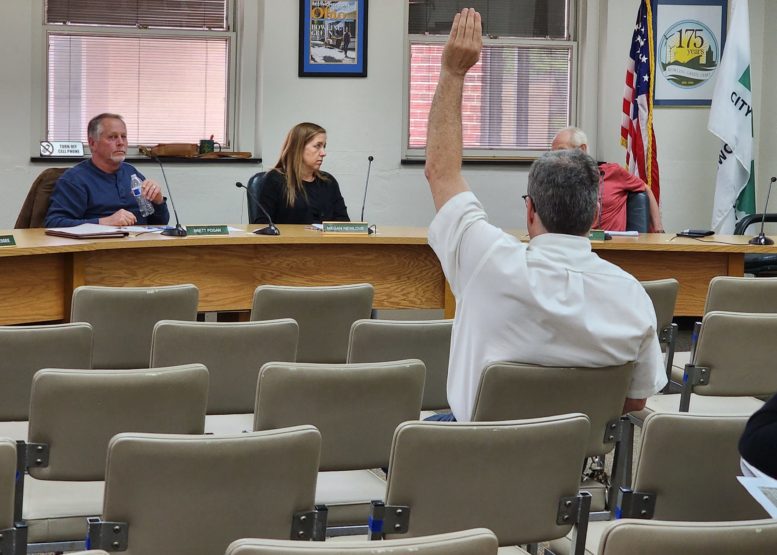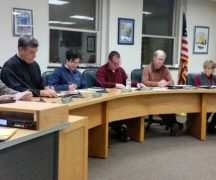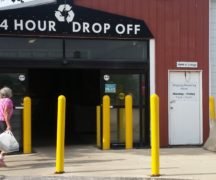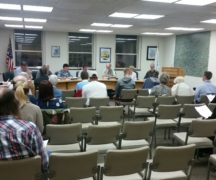By JAN LARSON McLAUGHLIN
BG Independent News
The rooftop solar issue in Bowling Green was brought to light again Monday evening by a candidate who lost in his race for mayor.
Joe DeMare, a Green Party member, returned to the podium at the City Council meeting to list all that he would have tried to accomplish – if he had been elected mayor. Three other citizens ceded their time at the podium to DeMare, so he had ample time to respond to claims that he was a one issue candidate.
DeMare – who got 26% of the vote, while Mike Aspacher got 74% – told council members that they shouldn’t misinterpret his loss as meaning Bowling Green voters don’t support the issues he represented. While campaigning door-to-door, he heard many comments from citizens about solar and wind power.
“More than 90% don’t want a solar fee,” he said. And citizens want the city to continue getting power from the wind turbines west of the city. “People are very attached to them and don’t want them destroyed.”
DeMare has repeatedly referred to the rooftop solar fee as a penalty placed on owners of such systems. After he wrapped up his speech to council, City Attorney Hunter Brown asked for an opportunity to respond to DeMare’s depiction of the solar fee and the lawsuit against the city over the matter.
“For months now I’ve sat here and bit my tongue,” Brown said.
Brown said he is confident that the court case will finally resolve the issue of whether the rooftop solar charge is a “fee” or a “penalty.”
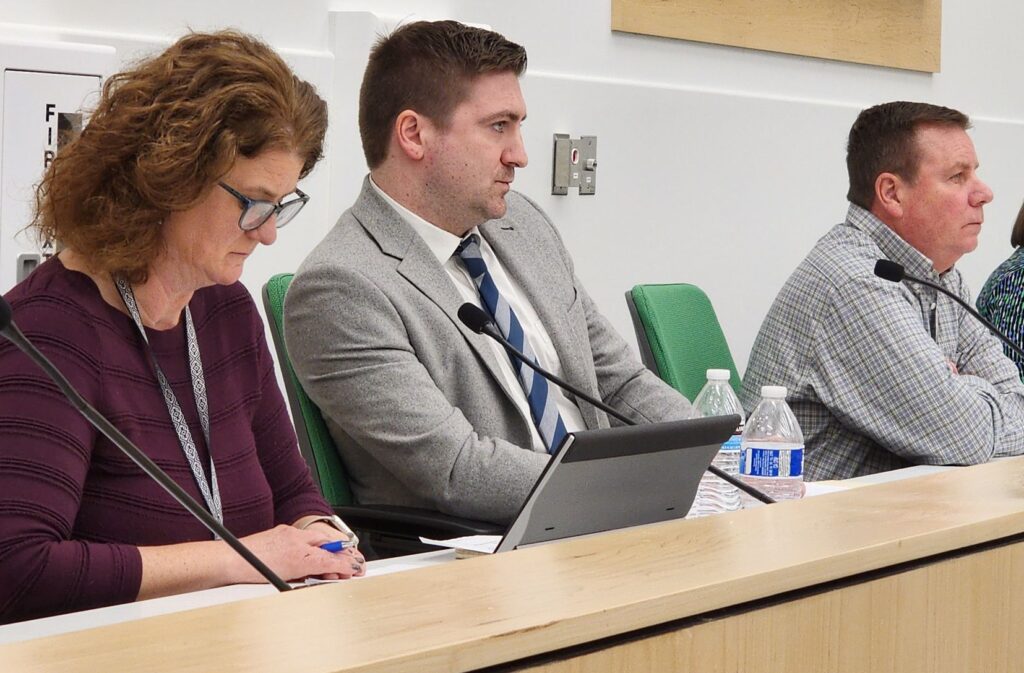
In October, Bowling Green residents Leatra Harper and Steve Jansto filed a lawsuit against the city over rules for homeowners with rooftop solar systems.
According to court documents, the lawsuit seeks to compel the City of Bowling Green to institute eminent domain proceedings to compensate the family trust “for the uncompensated taking of its property.”
The suit contends that actions by the city penalized the couple’s rooftop solar system and degraded their significant investment to replace gas with geothermal. They said their long-term goal to “achieve near net-zero living during the days of climate change” was thwarted by the city’s actions.
A takings lawsuit is when a government entity restricts a person’s use of their property to the point of it constituting a taking. A total regulatory taking occurs where regulations completely deprive an owner of all economically beneficial use of her property.
Brown pointed out that the plaintiffs are not asking that the rooftop solar policy be changed, but that the city be required to purchase their home through eminent domain.
According to Brown, the plaintiffs have paid less than $150 in total fees for their solar panels for all the years they have had them on their home – but the lawsuit is trying to force the city to spend nearly $700,000 to purchase their home.
The rooftop solar issue became a flashpoint in 2021 when the Board of Public Utilities began charging a fee for homeowners with rooftop solar that tied into the grid.
City officials called it a reasonable “fee” while rooftop solar users said it was an unfair “fine.”
Brian O’Connell, director of the city’s public utilities, has explained that the fee is necessary to make sure other electric customers in the city aren’t paying for those who choose to install rooftop solar panels.
The electric rates in the city are based on customers buying their energy from the city. A smaller portion of the rates is based on fixed electric system costs for such items as meters, poles, wire, transformers, switches and linemen – items needed for all homes including those with rooftop solar, O’Connell said.
“Those fixed costs don’t change just because someone decides to put rooftop solar on their home,” he said.
The city reimburses rooftop solar systems for the extra energy they produce and send to the city’s grid to be shared with other users. But without that fee being charged to homes with their own solar power, “the other customers are subsidizing their energy sales,” O’Connell said.

